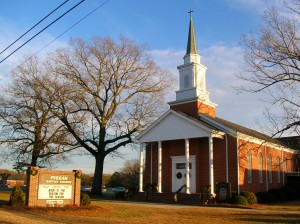 Earlier this week Family Research Council sent out an alert about a proposed IRS rule change that could eventually require churches and other 501(c)(3) nonprofits–including groups like FRC, Family Council, and others–to give the IRS the Social Security numbers of their donors.
Earlier this week Family Research Council sent out an alert about a proposed IRS rule change that could eventually require churches and other 501(c)(3) nonprofits–including groups like FRC, Family Council, and others–to give the IRS the Social Security numbers of their donors.
“Under this ‘optional’ new system, the agency is suggesting that 501(c)(3) organizations (like FRC) consider doing away with their written acknowledgements of gifts over $250 and consider sending all of their donors’ personal information to the agency instead. Specifically, the IRS is interested in Social Security numbers, which the agency insists would make it easier for givers. Instead of processing lots of paperwork, officials are cheering the idea as a way to cut down on paperwork and streamline the filing for both sides. Google ‘Lois Lerner’ if you think this is a good idea.”
The proposed IRS rule change was quietly rolled out a few weeks ago. The proposal states,
“Accordingly, the proposed regulations require that donees who opt to use donee reporting must report . . . the donor’s name, address, and taxpayer identification number. The donor’s taxpayer identification number is necessary in order to properly associate the donation information with the correct donor. Unlike a CWA, which is not sent to the IRS, the donee reporting information return will be sent to the IRS, which must have a means to store, maintain, and readily retrieve the return information for a specific taxpayer if and when substantiation is required in the course of an examination.” (Emphasis Added)
So what is a taxpayer identification number, and why is it such a big deal to ask nonprofits to give the IRS that information?
The IRS website lists multiple types of taxpayer identification numbers; however, for the average American, “taxpayer identification number” means “Social Security number.” Considering Social Security numbers appear on every tax return sent to the IRS, it’s easy to see why many Americans would not be bothered by the idea of Social Security numbers appearing on filings from nonprofits as well.
The problem is this rule change could eventually require churches and other nonprofits to collect Social Security numbers from all donors. That means church offices, for example, would be responsible for securing and maintaining Social Security numbers of church members. That’s going to make churches and other nonprofits targets for identity thieves and other criminals.
Asking nonprofits to collect and submit donors’ Social Security numbers won’t simplify the lives of taxpayers and nonprofits. It’s simply going to create more potential for problems.
The way the rules are proposed right now, Social Security number reporting would be voluntary for nonprofits, but–as FRC rightly points out–if these new rules are adopted, the IRS could later change the word “voluntary” to “mandatory.”
Here is What You Can Do:
Make your voice heard to the IRS. Go to www.regulations.gov (http://www.regulations.gov/#!documentDetail;D=IRS-2015-0049-0001) and ask the IRS not to adopt IRS REG–138344–13. When you go to the regulations website, click the “Comment Now” button on the right-hand side of the screen to submit your comment on this proposed rule change. The deadline to comment is December 16, so do not delay. Comment right now–and ask your friends to do the same.


